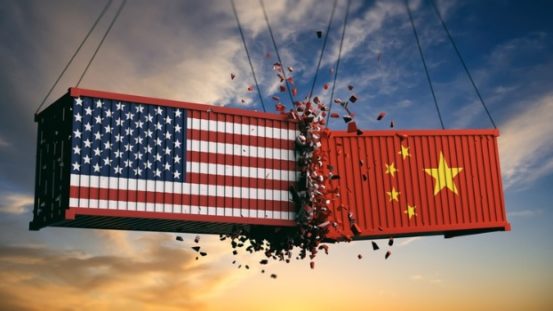European fund selectors have been unfazed about the risks presented by the US-China trade war as they increased their emerging market and Asia ex Japan equities over the last two quarters, according to data.
Last Word Research’s latest quarterly asset allocation survey found during Q1 2019 sentiment towards emerging market equities jumped 11 percentage points from Q4 2018. This was a further jump as sentiment also spiked 11 percentage points from Q3 during Q4.
Emerging market equities was also the most popular asset class (out of 26).
The survey found 32% of European selectors looked to increase their emerging market allocation over the 12 months to March 2020, 32% to hold, 20% to decrease, and 16% did not use the asset class.
Source: Last Word Research
Emerging market government bonds and Asia ex Japan equities also jumped in sentiment during Q1 at 14.8 and 13 percentage points respectively. Emerging market government bonds also came in third most popular asset class and Asia ex Japan equities came in sixth.
The survey also found that continental European fund selectors remained negative towards US equities with a two percentage point drop in sentiment since Q4. The asset class is the most unpopular out of 26.
No fund selectors looked to increase their US equity allocation, 56% looked to hold, 28% to decrease, and 16% did not use the asset class.
Source: Last Word Research
China-US trade war
On Friday the US increased duties on $200bn (€178.3bn) of Chinese imports to 25% and said it had plans to do the same with another $300bn of goods.
China responded on Monday by imposing $60bn of US imports starting 1 June, leading to the S&P500 falling over 2%.
On Thursday, European stocks and government bond yields fell after the US government banned Chinese firm Huawei Technologies and 70 affiliates from acquiring components and technology from US firms without government approval, Reuters reported.
No change in allocation
FiNet Asset Management’s head of portfolio management Frank Huttel told Portfolio Adviser’s sister title Expert Investor that eventually the two sides would have to agree on a deal but as both did not want to lose face it would take more time, keeping volatility high in financial markets.
“I care about the trade war, but I try to look through the negotiations and use corrections to add to some positions,” he said.
So far, the trade war has not impacted Huttel’s asset allocation decisions, he said.
The German fund selector said he had been invested in UBS (Lux) Equity Fund – China Opportunity (USD) P since Q4 2018 and that he would add to the position if the correction from the global sell-off in late 2018 continued.
Stefan Schrader, managing director at Titus Beratung in Germany, said the trade war had become a key theme for President Trump’s 2020 election campaign and volatility would continue as long as dialogue on the issue continued.
However, Schrader said he was not concerned, did not believe anything serious would happen in the near future, and had not changed his allocation.
“This is all short-term noise and tactics around negotiating. China is in good economic health but if they feel like they will lose face, then the consequences in the long term will be painful for the US,” he said.
“If Trump wins the next election, and right now it looks that way, then I see bigger problems to come because I think he will then really escalate the situation. But that’s some time to go.”
Schrader said if Trump escalated the situation in the short term through only dialogue and markets fell, he would use the opportunity to reallocate and buy more emerging market equities to increase his Chinese position.
“I have a quite big a China position via emerging market equity funds, and our emerging market bond portfolio that has had good performance so far this year,” he said.
“Even though my overweight in emerging markets is quite big I would still buy more if the markets fall because Chinese people have a very strategic view on everything and any long term plan they have is always achieved.”
Schrader said that he was still underweight US equities and his only direct investment was through JP Morgan’s US Technology fund as other global markets such as Japan were cheap.
Tame retaliation
Speaking at a media briefing on Tuesday Eastspring Investment’s chief investment officer, Virginie Maisonneuve, said the China-US trade war created uncertainty but it was not a confirmed risk.
“I believe that there’s room for this issue to be dealt with between now and the G20 but it’s not going to be easy,” she said.
“What I’d like to point out is that is it creates uncertainty but at this point it is not a risk meaning it is not a confirmed risk.”
Maisonneuve noted that the $60bn in tariffs imposed by China had already been announced in August 2018 and while discussions had changed this number a few times, the imposed tariff had already been mentioned months ago.
“I would say the retaliation that China has had has been extremely tame,” Maisonneuve said.
“The impact of the trade war will be bigger on China but the impact on the S&P500 earnings per share could be quite meaningful.”
According to a Bank of America Merrill Lynch European fund manager survey, a US-China trade truce would be the most positive event for European risk appetite. This was followed by ‘evidence of 10%+ EPS growth’, and a ‘soft Brexit deal’.











